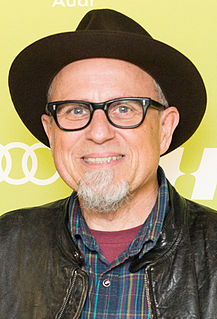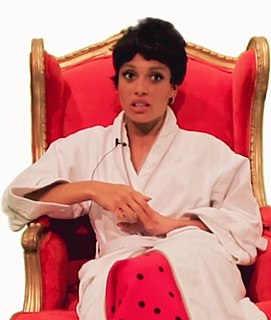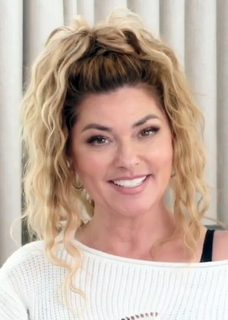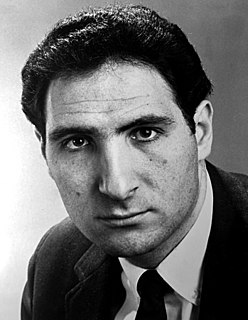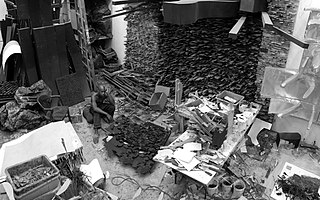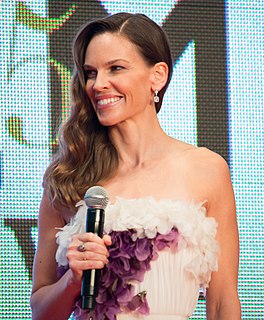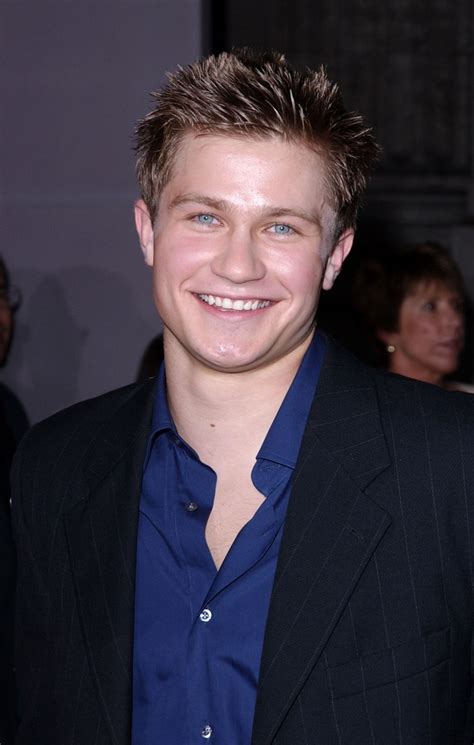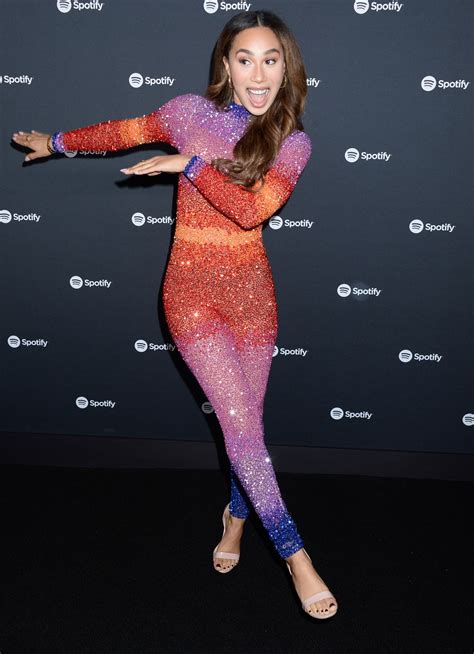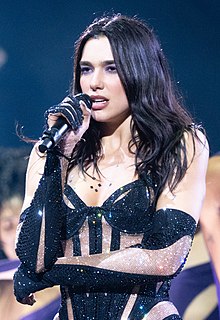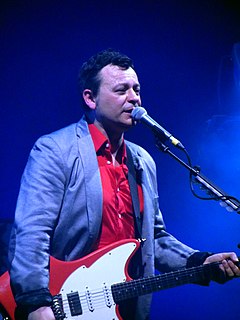A Quote by Bobcat Goldthwait
When I first started directing, I could have chosen a more lucrative path, with sitcoms and things like that. But I knew enough after the experiences I had in front of the camera that I was not going to do that, because I was just going to work on my own things or work with people I respected.
Related Quotes
People are going to write and say things you don't like. They're going to take things out of context. What are you going to do? You can't let it destroy your life. That's their problem. They're going to go on and not be respected for what they do. Just worry about what you do. You have to make up your mind. You also have to be prepared for fallout. You have to accept the industry you're in.
I was not going to be an actor. I was an engineer in physics. That's what I did: I graduated with a physics degree, and I had become a little bit distressed that I'd have to work for somebody - anybody! And I thought, "I'm not going to make a mark on anything. If I can't express myself, then I don't know what the heck I'm going to do with this life." I think it was just one of those germs that said, "No, no, no, you've got to say things. You've got to tell people things. You've got to express your opinion in this life, because that's how you started."
I started making work, and it's like, yes you are calling out all of these things that are part of your memory, your body's memory, things that have gone through your pores, what you've seen, what you've experienced, and you spill them out without thinking. I don't think so much about, "Okay, I'm going to make work, and it's going to be about this." It's just going to come out.
You're not always going to hit the bull's-eye. I'm going to make movies that work and I'm going to make movies that don't work, and that's just a part of being creative. Because really, I think if you're taking risks and you're pushing yourself and you're doing things that scare you, you are going to fall on your face, and it's not always going to work.
I cannot tell you how many times guides have said to me, "Please tell them to stop praying to me. I can't make things happen. I can't protect them from going through challenging experiences. These are experiences their soul has chosen to go through. I'm here to keep them on their path, but I don't want them to give me all this attention or power or focus." Realistically, the guides I work with are really encouraging people to find their inner voice.
One of the first things I said to my kids and we all agreed upon when we first started shooting the show was if we're going to do this, we're all in. We're not going to worry about editing ourselves. So that's what you see. It's raw, and it's real, and it's footage that hopefully people learn from some of our experiences.
I'm always going to hear people make that connection and I've just accepted it. It's alright. I'm just happy that I get to do my own thing now. I learned a lot from the show [the Voice] as far as being in the TV world and being in front of the camera, which is really great because I'm not as nervous in front of the camera as I was before.
I was going to college for broadcast journalism because I knew whatever career path I would take, I knew I wanted to be talking to as many people as possible and inspiring as many people as possible, particularly girls. When I was in college, I was like, 'I know I'm going to be on camera a lot when I'm older if I fall into my dream job.'
I was 11 and living in Kosovo. I knew I wanted to perform but didn't feel like I could do it there. So I moved back to London on my own at 15, carried on going to school, and started posting cover songs online. I had no idea how I was going to become a performer, but I felt like I had so many more opportunities being in London.
The people I've met -- obviously, the people I'm going to meet after concerts are people that bother to hang around and there's going to be more of a chance of things translating to them because they're going to take more time over it, if they're going to wait around to meet us. But so far, it does seem as if things written down are translating into people actually buying it, that kind of way.
